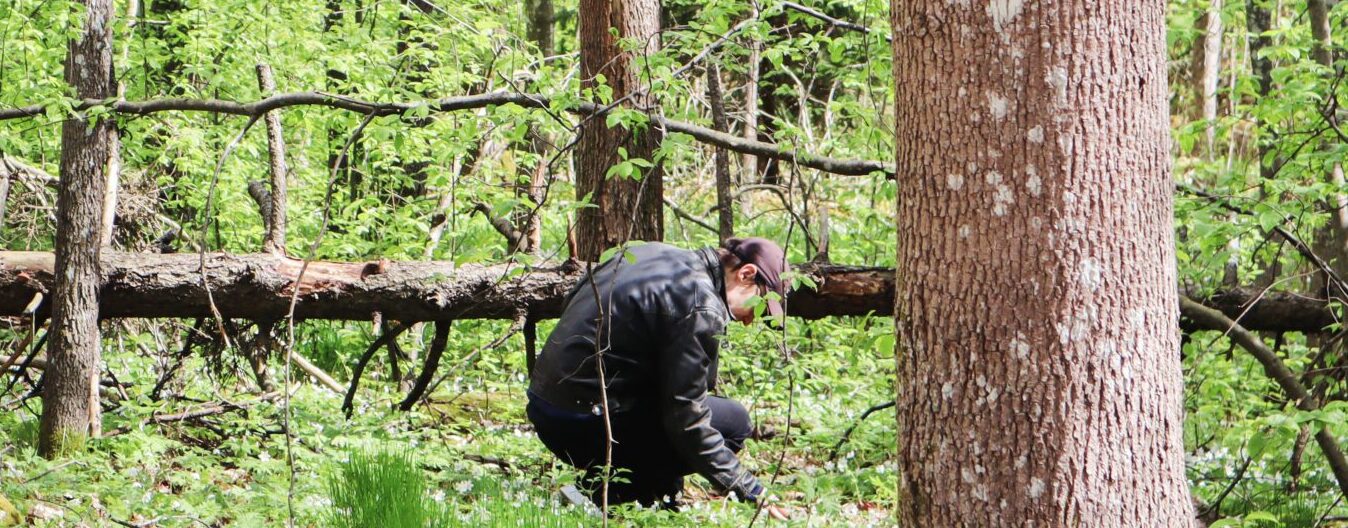Funded by the Nessling Foundation, Kudelma cooperative’s Municipalities as Part of Nature project invited four municipalities to examine the anthropocentric assumptions embedded in their work and to strengthen their understanding of humans as part of nature. In her blog post, Kudelma’s sustainability expert Pihla Soinnunmaa describes how the project’s ideas about an ecologically sustainable future were received at the municipal level.
“Could this park be a place for barnacle geese to return to?” wondered a park designer during a workshop in our training project. That thought-provoking question was not only beautiful — it made the trainer burst with joy. Yes, this is exactly the kind of thinking our entire project is about.
During 2025, we at the Kudelma cooperative have had the opportunity to carry out a project funded by the Nessling Foundation — a project that originally began as a wild idea: to create a workshop series aimed at dismantling human-centered ways of working within municipalities. Despite its slightly cryptic name, Municipalities as Part of Nature – Dismantling Anthropocentrism in Municipal Work, we received more inquiries from potential partner municipalities than the pilot could accommodate. It began to seem that we had indeed identified a timely and much-needed project idea.
Peer support and recognising the positions of power
The participating municipal employees brought valuable expertise and motivation to advance nature’s well-being, but also frustration with slow organisational change and value climates that place finances first. The workshops became a place for honest peer support, where participants could think beyond the human perspective with courage.
Power emerged as a key theme in our training. Where does each person hold power — and where not? Many participants recognised more clearly than before how their everyday micro-decisions shape outcomes: the choices they make at work, the issues they raise, and the words they choose. Our trainer Jaana Laisi summed it up: “This moment, too, was created through micro-decisions made in the past.”
Leveraging change by addressing root causes
Throughout the training, we worked on the level of paradigms — the shared assumptions, beliefs, and ways of thinking that shape our worldview. We focused on one root cause of the sustainability crisis: the mindset that separates humans from nature and places humans above it. The project was inspired by Donella Meadows’s classic theory of leverage points in systemic change, in which changing the paradigm is among the most powerful interventions. What a delight it was to witness the practical impact of Meadows’s ideas over the course of the year!
One of the most concrete examples came from the reflections of a municipal forest planner in the final workshop. He explained that he used to look at a dense thicket as brush that needed to be cleared for humans. Now the perspective had shifted: it was, in fact, a valuable habitat for other species. The same participant also shared that he had previously believed humans could control nature, standing somehow above it — but now understood humans as part of nature. Our jaws quite literally dropped — this really works!
Mindsets do not change overnight
“What surprised me most was that even for me, this brought entirely new perspectives,” reflected one participant who had questioned human-nature dualism since their student days and now works in municipal environmental protection. Dismantling anthropocentrism is likely a gradual process for almost anyone raised within Western culture. At Kudelma, we are engaging in this process personally as well — and hope to continue it in collaboration with an increasing range of actors, from municipalities to businesses.
We now look ahead with inspiration. At the heart of our planned follow-up project is an ambition to invite more municipalities — and especially decision-makers — to examine municipalities as part of the larger whole of nature, geese and thickets included.
The author, Pihla Soinnunmaa, works as an expert and trainer at the Kudelma cooperative.
Kudelma’s work focuses on holistic sustainability thinking and on communicating and training research-based knowledge related to the sustainability transformation. In the Municipality as Part of Nature – Dismantling Anthropocentric Thinking in Municipal Work project funded by the Maj and Tor Nessling Foundation, Kudelma carried out a workshop series for four municipalities. The aim was to advance a deep sustainability transformation within the municipal sector by dismantling anthropocentric ways of thinking and working, and by strengthening municipal actors’ understanding of humans as part of nature.
A podcast series has also been published as part of the project — listen here (in Finnish).

